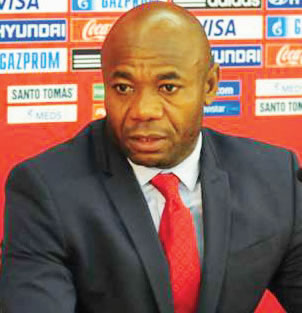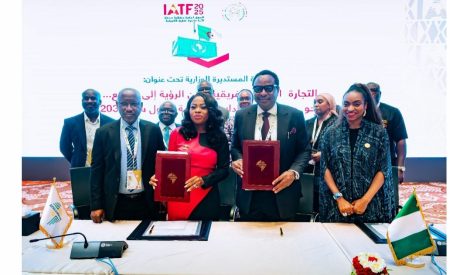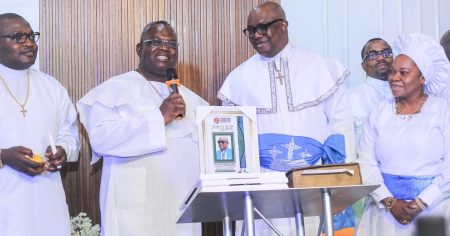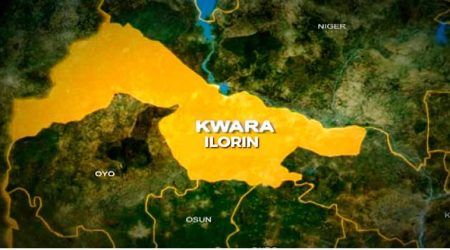The recent allocation of a house to former Super Eagles striker Efan Ekoku has reignited discussions surrounding the government’s commitment to fulfilling its three-decade-old promise to the 1994 Africa Cup of Nations-winning squad. Emmanuel Amuneke, another prominent member of that victorious team, confirmed he received his allocated property long ago, urging the government to expedite the distribution process for the remaining players. This act of recognizing and rewarding the team’s historic achievement has been lauded as a testament to the government’s commitment to honoring its pledges and acknowledging the contributions of national heroes.
The 1994 Super Eagles squad etched their names into Nigerian football folklore by clinching the nation’s second AFCON title. Their thrilling 2-1 victory over Zambia in the final showcased the team’s exceptional talent and unwavering determination. The squad, brimming with stars like Amuneke, Ekoku, and other luminaries of Nigerian football’s golden generation, captivated the nation and inspired a generation of aspiring footballers. The government’s promise to reward their triumph with housing allocations was a gesture of gratitude for their service to the nation. However, the fulfillment of this promise has spanned decades, raising concerns and prompting calls for its timely completion.
The recent presentation of an allocation letter to Ekoku signals a renewed effort to honour the outstanding commitment. Lisa Jennifer Nwagbogun, representing Ekoku at the ceremony, expressed profound gratitude for the gesture, emphasizing the importance of upholding public promises and recognizing the team’s contribution to national pride. The government’s action serves as a powerful reminder of the lasting impact of the 1994 Super Eagles and their enduring legacy in Nigerian sports history.
The housing allocation initiative, stemming from a pledge made almost thirty years ago, underscores the government’s recognition of the team’s historic feat. The 1994 AFCON victory not only brought glory to Nigeria but also fostered national unity and pride during a significant period in the country’s history. The players’ dedication and exceptional performance on the continental stage resonated deeply with Nigerians, solidifying their status as national heroes. The government’s commitment to fulfilling the housing promise, albeit delayed, demonstrates a dedication to honoring these individuals and acknowledging their lasting contribution to the nation’s sporting heritage.
The distribution of housing units across various states, including the Federal Capital Territory, Abuja, reflects the government’s intention to ensure equitable distribution and cater to the players’ individual preferences. The allocation process, though protracted, signifies a positive step towards fulfilling a long-standing obligation. The government’s commitment to finally delivering on this promise underscores the importance of recognizing and rewarding national heroes for their sacrifices and contributions to the nation’s pride.
As the remaining members of the 1994 Super Eagles squad await their allocations, the fulfillment of this promise carries symbolic weight. It represents not only the recognition of their historic achievement but also the restoration of faith in government commitments. The timely completion of this process will further solidify the legacy of the 1994 team and serve as a testament to the enduring power of sports to inspire and unite a nation. Furthermore, it reinforces the importance of honoring commitments made to those who have brought honor and glory to their country.














